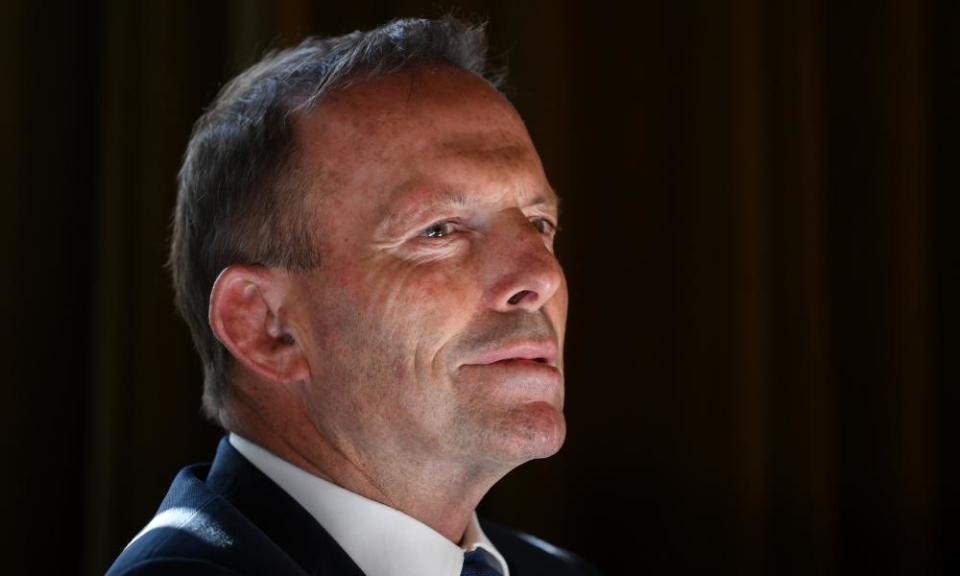Johnson may block Chinese takeover of UK’s largest computer chip maker

Boris Johnson may block a Chinese-owned company from purchasing the UK’s largest producer of semiconductors, a senior government adviser has suggested, as they warned Beijing was on the brink of initiating a new “cold war”.
Tony Abbott, the former prime minister of Australia recruited by Johnson to advise on post-Brexit trade, said he was heartened by a review being launched into the takeover of Welsh microchip manufacturer Newport Wafer Fab by Nexperia and suggested it meant the process could be paused.

Johnson had asked his national security adviser, Sir Stephen Lovegrove, to look into the sale after previously being accused of acquiescing to the deal by not scrutinising it more closely, particularly given the semiconductor industry’s geopolitical prominence.
China has targeted it as a key technology for the future economy, with more than a trillion chips made a year and global shortages causing big delays for carmakers, both in the UK and abroad.
The global shortage in semiconductors, the microchips that are an essential component in every electronic device in the world, started as a temporary delay in supplies as chip factories shut down when the coronavirus pandemic first hit.
However, while factory production has returned to normal, the shortage has become a global crisis, with a new surge in demand leading to companies fighting to secure the limited supplies coming to the market.
Apple, the world’s biggest buyer of semiconductors – spending $58bn (£41.7bn) annually – was forced to delay the launch of the iPhone 12 by two months last year because of the shortage. Sony has warned it may not hit sales targets for the new PS5 console this year because of chip supply problems, and Samsung, the second biggest producer and consumer of chips in the world, said it might have to postpone the relaunch of its high-end smartphone.
However, the hardest hit sector has been the global automotive industry. Car manufacturers are relative newcomers to the semiconductor industry, as investment in tech-heavy electric vehicles increases, and have found themselves at the back of the supply queue. The biggest automotive players, Toyota and Volkswagen, spend about $4bn annually on chips, making them relative minnows in the supply chain.
Ford has been forced to cancel shifts at two car plants and said profits could be hit by up to $2.5bn this year, Nissan is idling output at some plants in Mexico and the US, and General Motors has warned of a $2bn profit hit.
The battle for chip supplies has also sparked governmental concerns. Earlier this week, Boris Johnson said the UK government would step in to review the purchase of the UK’s largest producer of semiconductors by a Chinese-owned manufacturer, under the new National Security and Investment Act 2021 designed to protect key infrastructure businesses from foreign takeovers.
The shortage is forecast to last until 2023 because new chip factories are highly complex to build and take up to two years to become operational.
Mark Sweney
Nexperia, a Dutch firm wholly owned by China’s Wingtech, announced at the start of July it was acquiring Newport Wafer Fab – the UK’s largest producer of silicon chips, which are vital in products from TVs and mobile phones to cars and games consoles.
Abbott said a special committee was created in Australia called the “foreign investment review board” to look at all “significant foreign investments” – and that such a purchase should be ringing alarm bells.
Related: Global shortage in computer chips 'reaches crisis point'
He said it was “pretty clearly the current purchase that is currently contemplated here in Britain would not go ahead were it happening in Australia”, adding: “But I also think that now that the prime minister’s national security adviser is looking at it here, obviously Britain is moving in a comparable direction.”
Abbott also called on Johnson to be wary of China’s growing prominence, saying the country was “likely to be the challenge of the century with big implications for economics as well as security”.
Speaking at a Policy Exchange event on Tuesday, Abbott said: “After 40 years of bide and hide, China is asserting itself aggressively in what is at best a cold peace and more likely a new cold war, only against a strategic competitor that is far more formidable than the old Soviet Union because it is being increasingly embedded inside the global economy and can bring economic as well as military pressure to bear against its targets.”
Abbott said the UK should not stop trading but instead be “much more careful” about becoming economically dependent on China and assess where projects have “far more long-term value for them than us”.
He said China sees trade as “strategic weapon” to be turned “on and off like a tap to reward friends and punish foes”.
In a thinly veiled reference to Newport Wafer Fab, Abbott said that no matter how close relations were between Chinese and British firms, the level of control exercised by the Beijing government meant it would be “unwise” to sell UK tech firms that aid China’s interests.

 Yahoo Movies
Yahoo Movies 